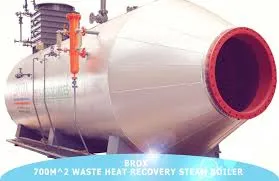CE Certification in the Boiler Industry for Enhanced Safety and Compliance Standards
CE Certification in the Boiler Industry Ensuring Safety and Compliance
The boiler industry plays a critical role in numerous sectors, including manufacturing, energy production, and heating systems. With the increasing emphasis on safety, environmental sustainability, and compliance with international standards, CE certification has gained paramount importance in this domain. CE marking signifies that a product meets the European Union's safety, health, and environmental protection requirements. This article provides an overview of CE certification in the boiler industry, its significance, the process involved, and its impact on manufacturers and consumers.
Understanding CE Certification
The CE mark, short for Conformité Européenne, is a mandatory conformity marking for products sold within the European Economic Area (EEA). By affixing the CE mark to a boiler, manufacturers indicate that the product complies with all relevant EU directives and regulations. This certification not only facilitates trade within the EEA but also enhances consumer confidence, as it indicates that the product adheres to high safety standards.
Importance of CE Certification in the Boiler Industry
1. Safety Assurance Boilers operate under high pressure and temperature conditions, making safety a critical concern. CE certification ensures that boilers are designed and manufactured to prevent accidents, leaks, and failures. Compliant boilers are subject to rigorous testing that verifies their structural integrity and operational safety.
2. Market Access For manufacturers aiming to market their boilers in Europe, CE certification is essential. Without the CE mark, products cannot be legally sold within EU member states. This certification opens up extensive market opportunities and helps manufacturers compete more effectively.
3. Environmental Compliance The CE certification process also evaluates a product's environmental impact, encouraging manufacturers to consider eco-friendly practices. This is increasingly important in the context of global climate change initiatives and EU regulations aimed at reducing carbon emissions.
4. Consumer Protection CE certification enhances consumer trust by ensuring that the products they purchase meet stringent safety and quality standards. It assures users that they are acquiring reliable heating solutions that have undergone thorough testing and validation.
ce certification boiler industry

The CE Certification Process for Boilers
The process for achieving CE certification involves several critical steps
1. Identification of Applicable Directives Manufacturers must first identify the relevant EU directives that apply to their boilers, such as the Pressure Equipment Directive (PED) and the Ecodesign Directive. Each directive has specific requirements that must be met.
2. Technical Documentation Manufacturers need to create technical documentation demonstrating compliance with the applicable directives. This documentation typically includes design calculations, risk assessments, and testing results.
3. Testing and Assessment Depending on the complexity and risk level associated with the boiler, manufacturers may need to undergo testing by a Notified Body—a third-party organization designated by EU member states to assess conformity. This phase is crucial in validating that the boiler meets safety and performance standards.
4. Declaration of Conformity Once all testing and documentation are complete, manufacturers must compile a Declaration of Conformity, which states that the product complies with all applicable EU regulations. This document must be kept available for inspection.
5. Affixing the CE Mark After successfully completing the above steps, manufacturers can affix the CE mark to their products, allowing them to be sold in the EEA.
Conclusion
CE certification in the boiler industry is not just a regulatory requirement but a vital component of ensuring safety, environmental compliance, and consumer protection. As the demand for efficient and safe heating systems continues to grow, the importance of adhering to high standards through CE certification will only increase. For manufacturers, obtaining CE certification not only opens doors to the European market but also reinforces their commitment to safety and quality. Ultimately, well-regulated and certified boilers contribute to a safer, more sustainable industrial landscape, benefitting manufacturers, consumers, and society at large. As the industry evolves, staying abreast of changes in regulations and investing in compliance will be crucial for long-term success.
-
High-Efficiency Hotel Water Boiler - Reliable Hot Water Solutions for HotelsNewsJul.05,2025
-
High-Efficiency Industrial Boiler Plant Supplier & Factory Quality Boiler Plant ProductsNewsJul.05,2025
-
High-Efficiency House Hot Water Boiler Supplier & Factory Reliable House Hot Water Boiler Product SolutionsNewsJul.04,2025
-
Top Boiler Dealer & Supplier Quality Boiler Dealer Products from Factory DirectNewsJul.04,2025
-
High-Efficiency Waste Heat Recovery Boiler Expert Service & QuotesNewsJul.04,2025
-
Top Industrial Boiler Contractors Supplier & Factory Quality Products & ServicesNewsJun.10,2025

